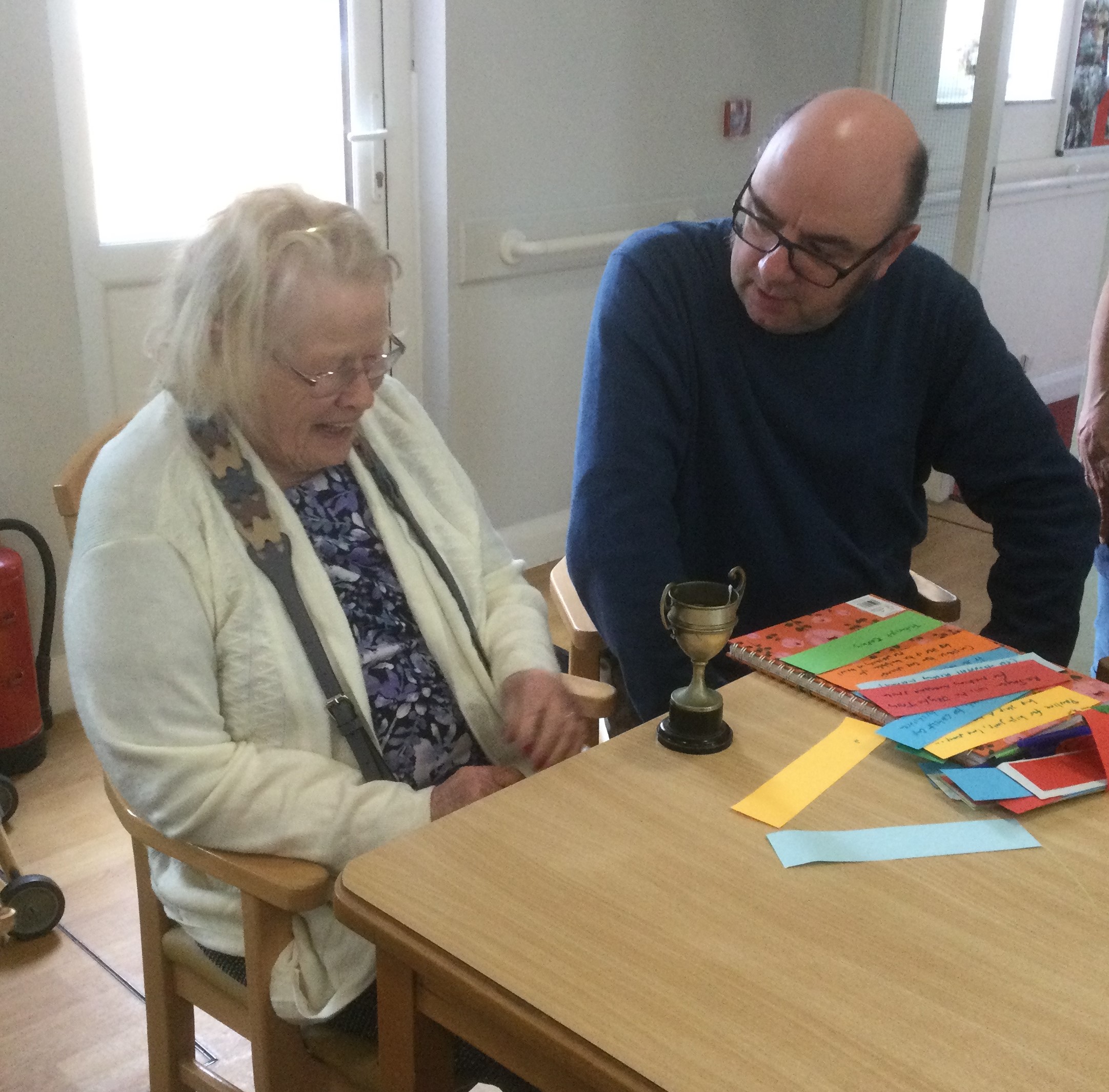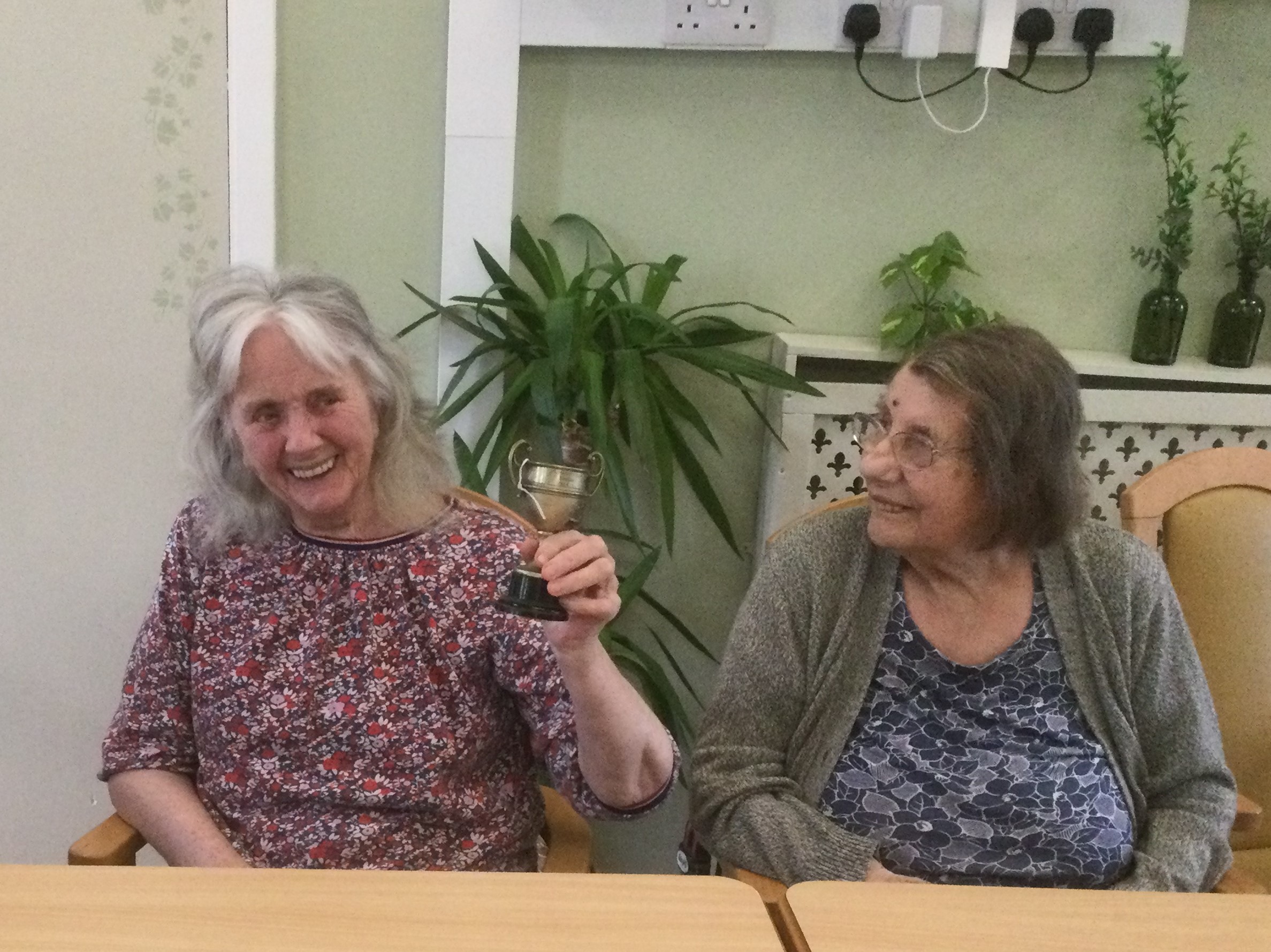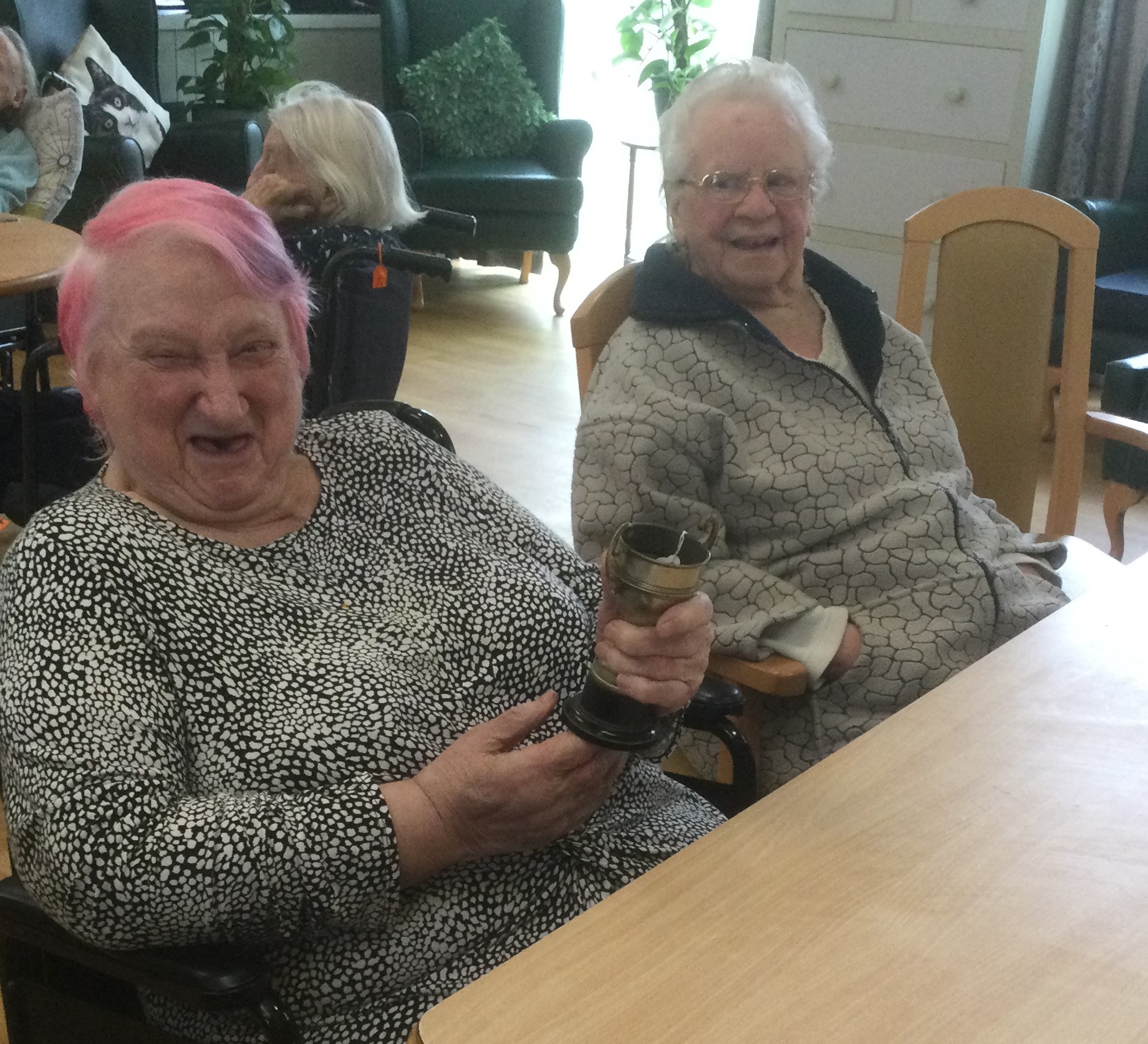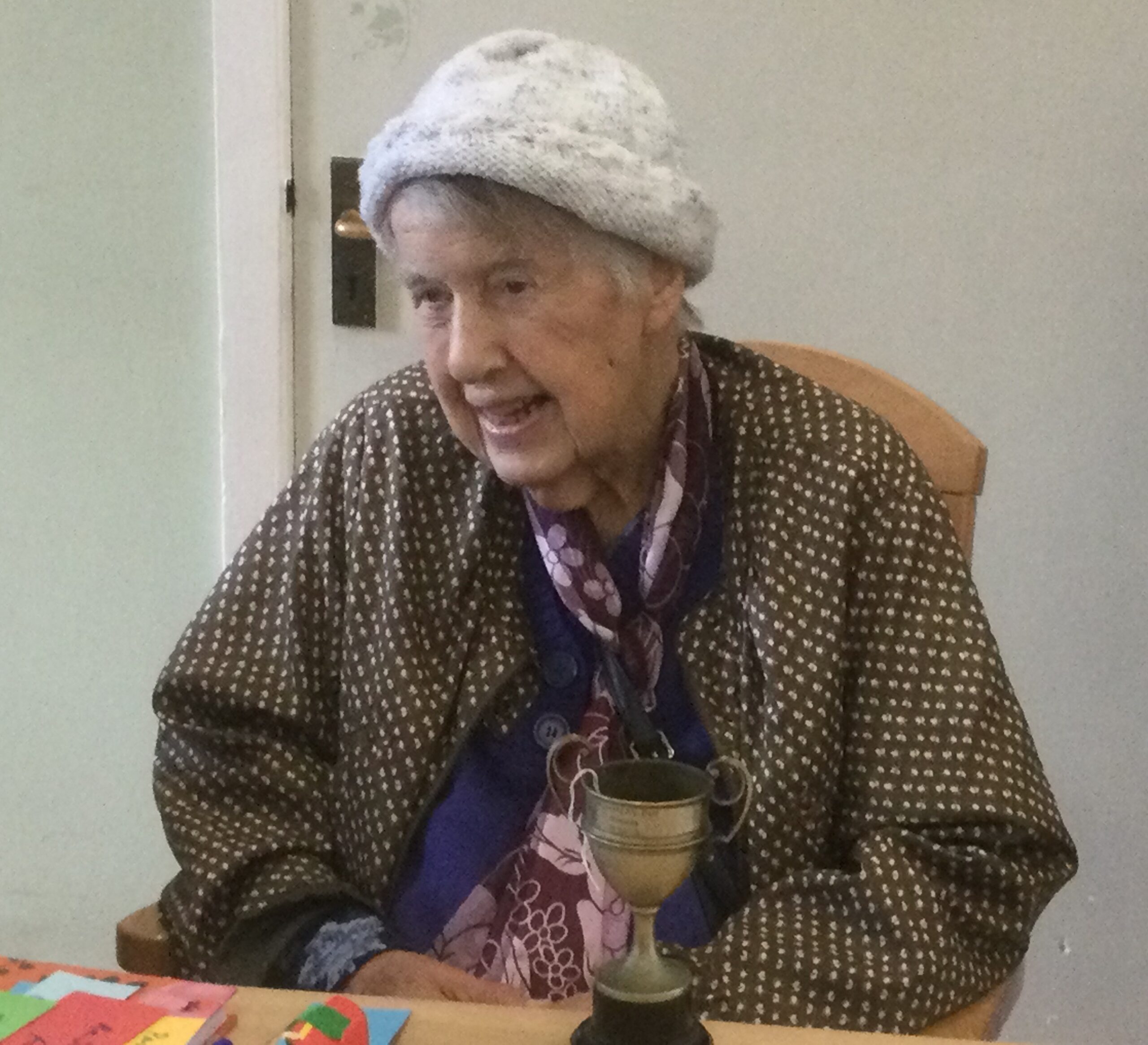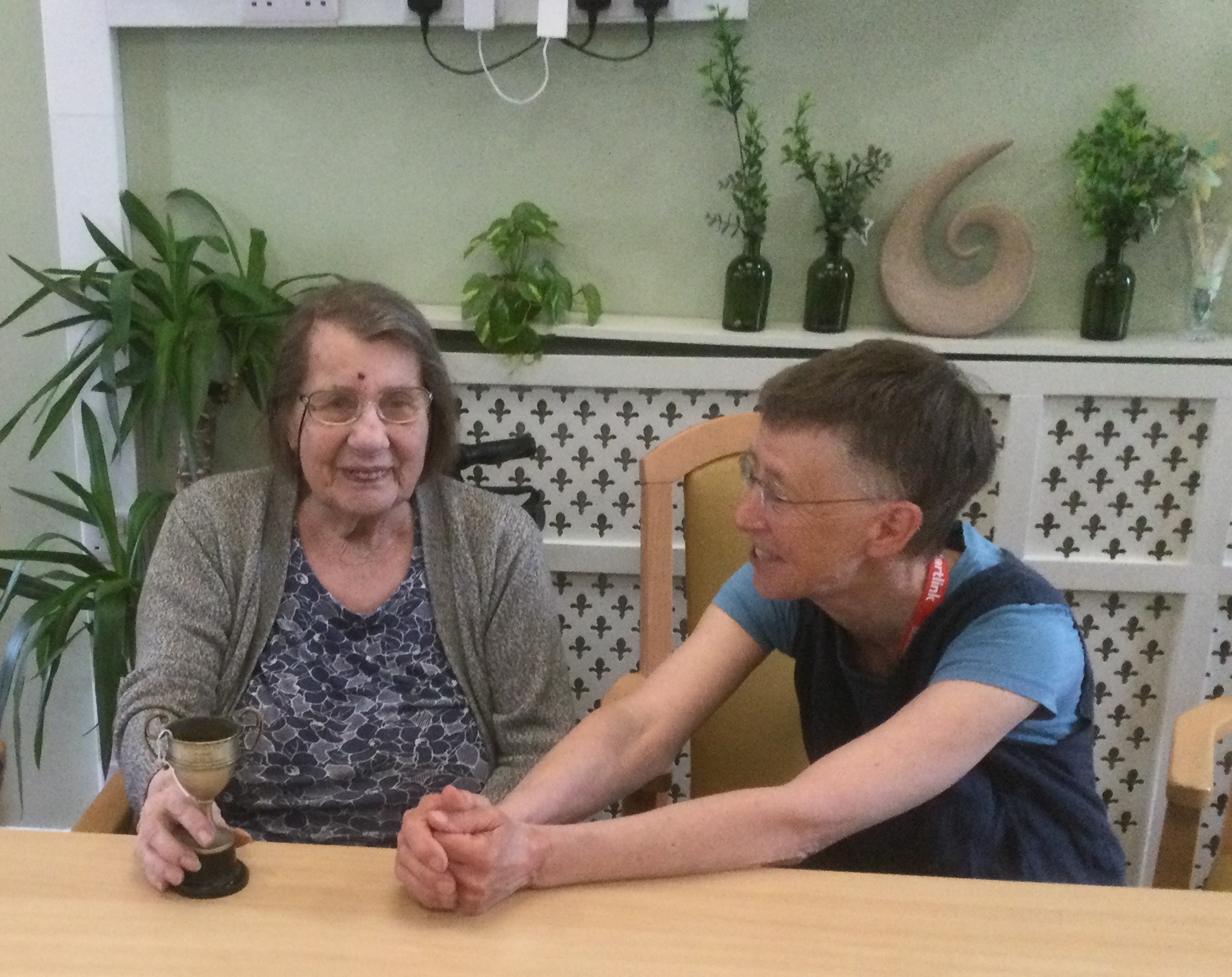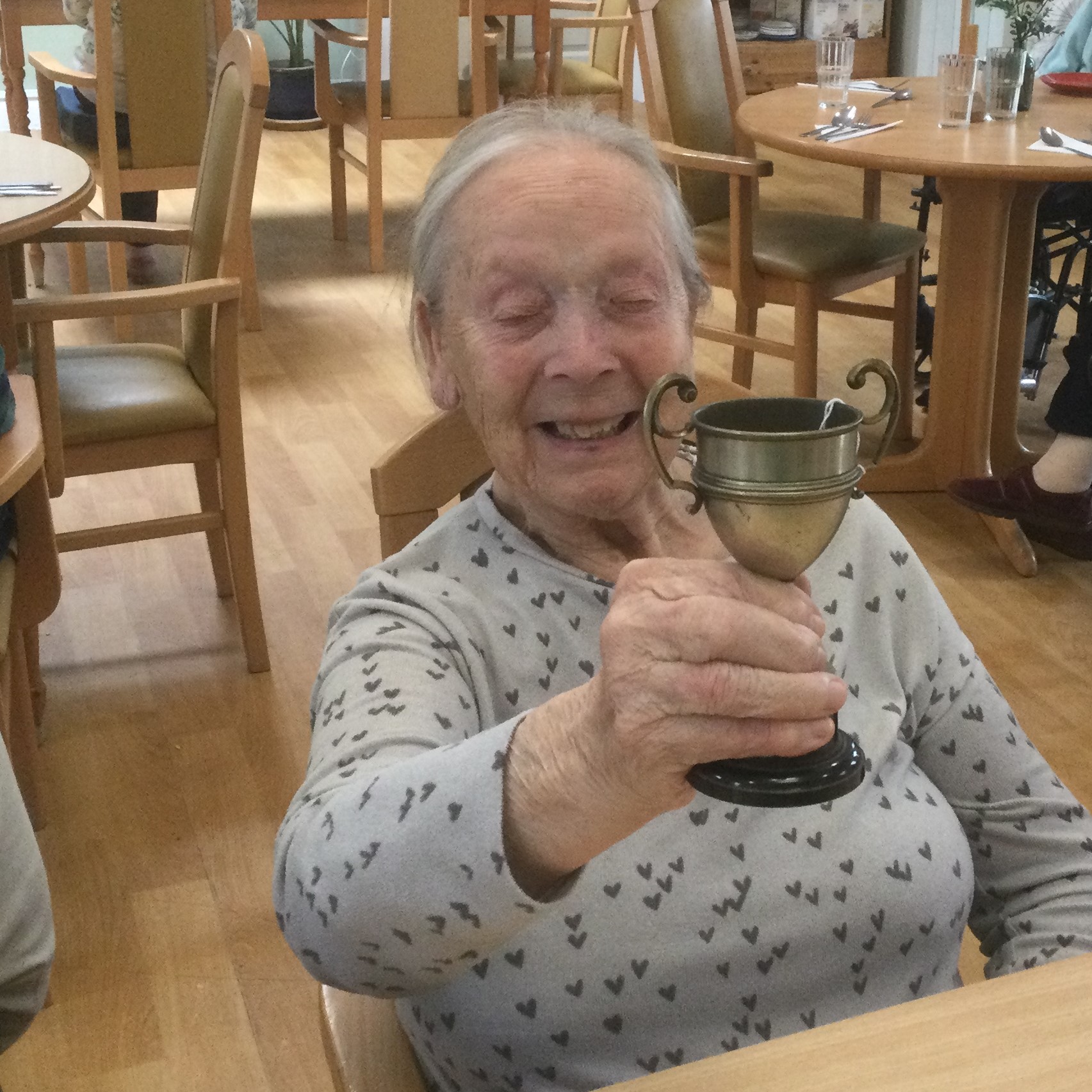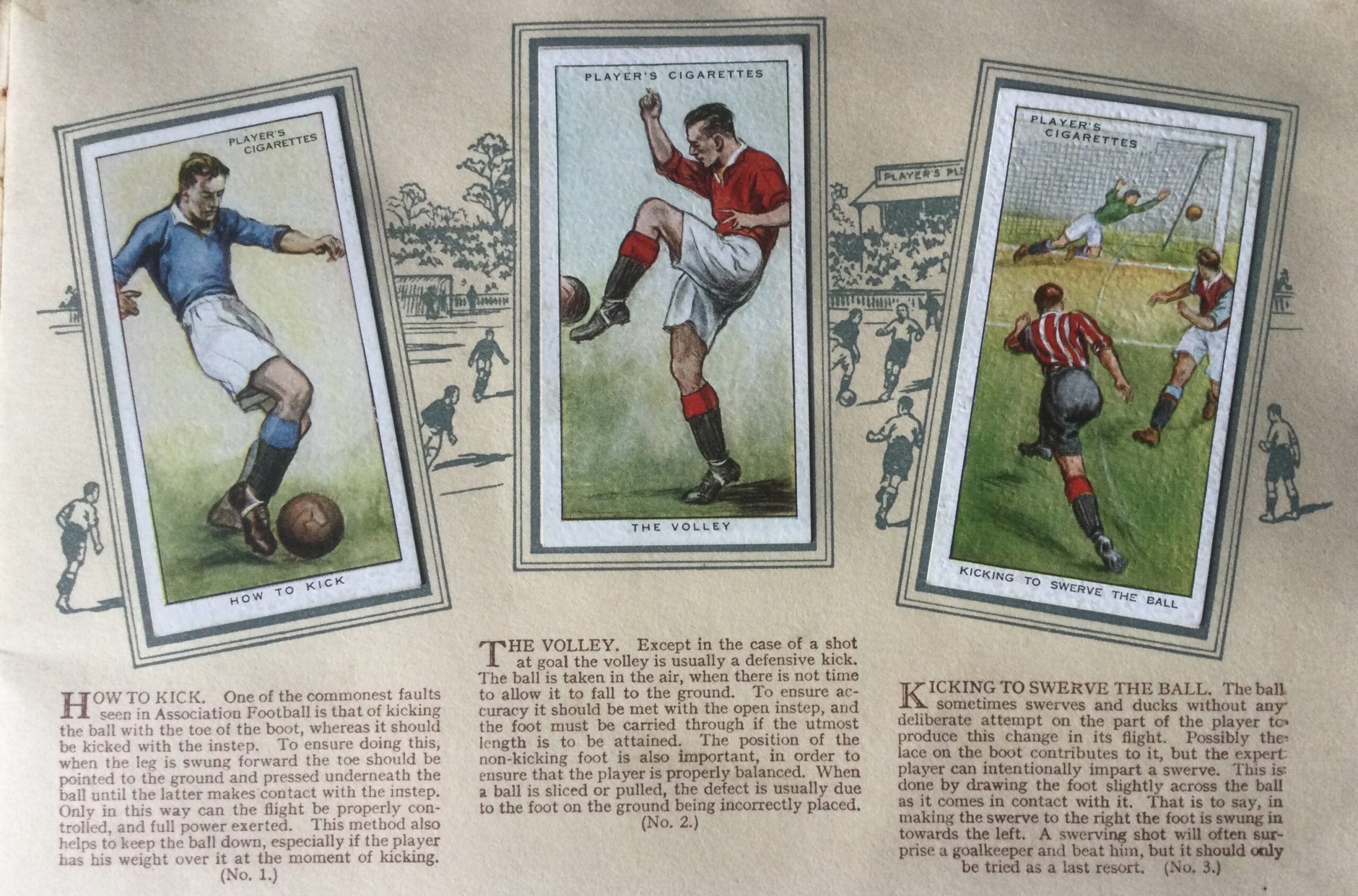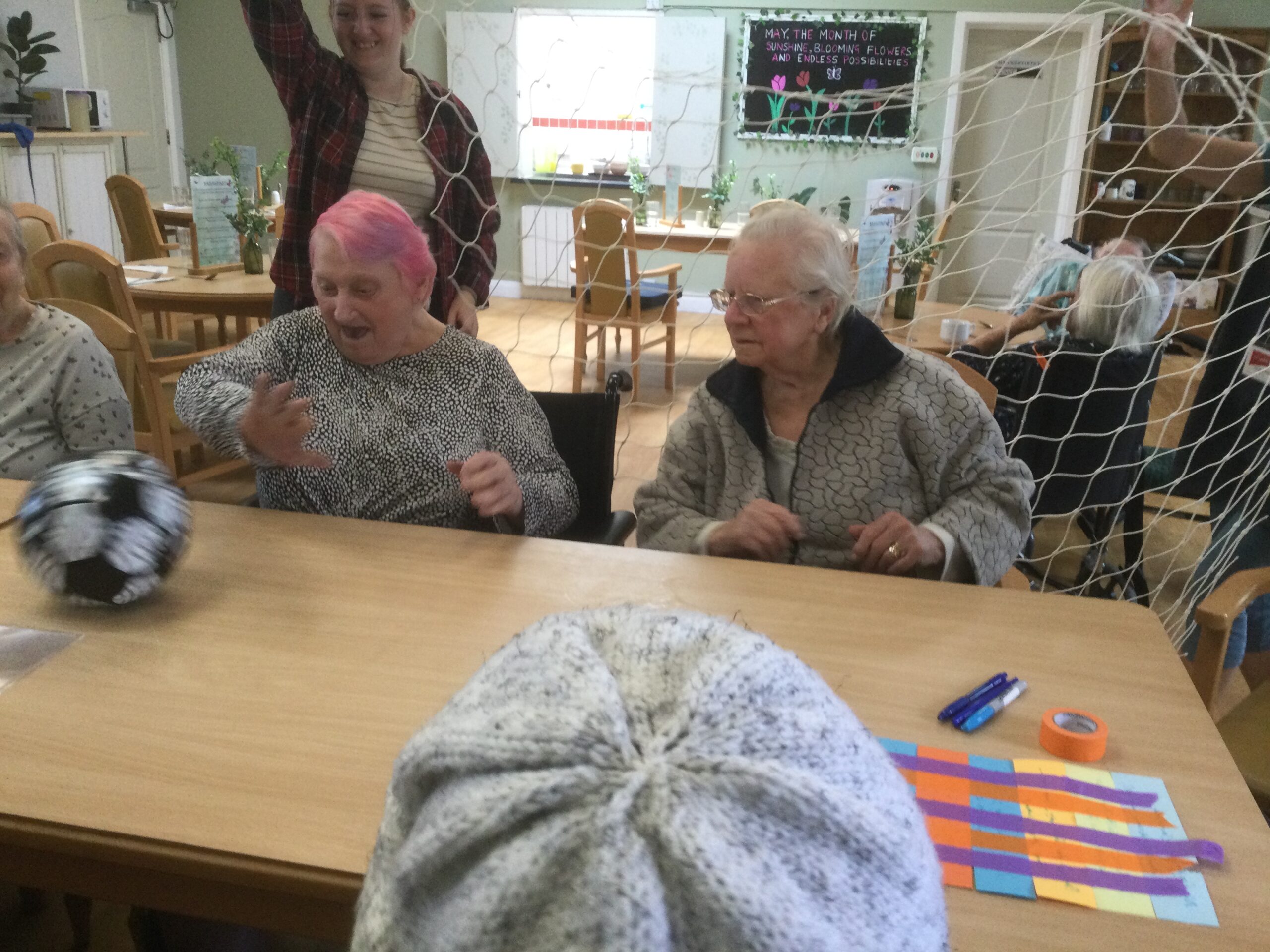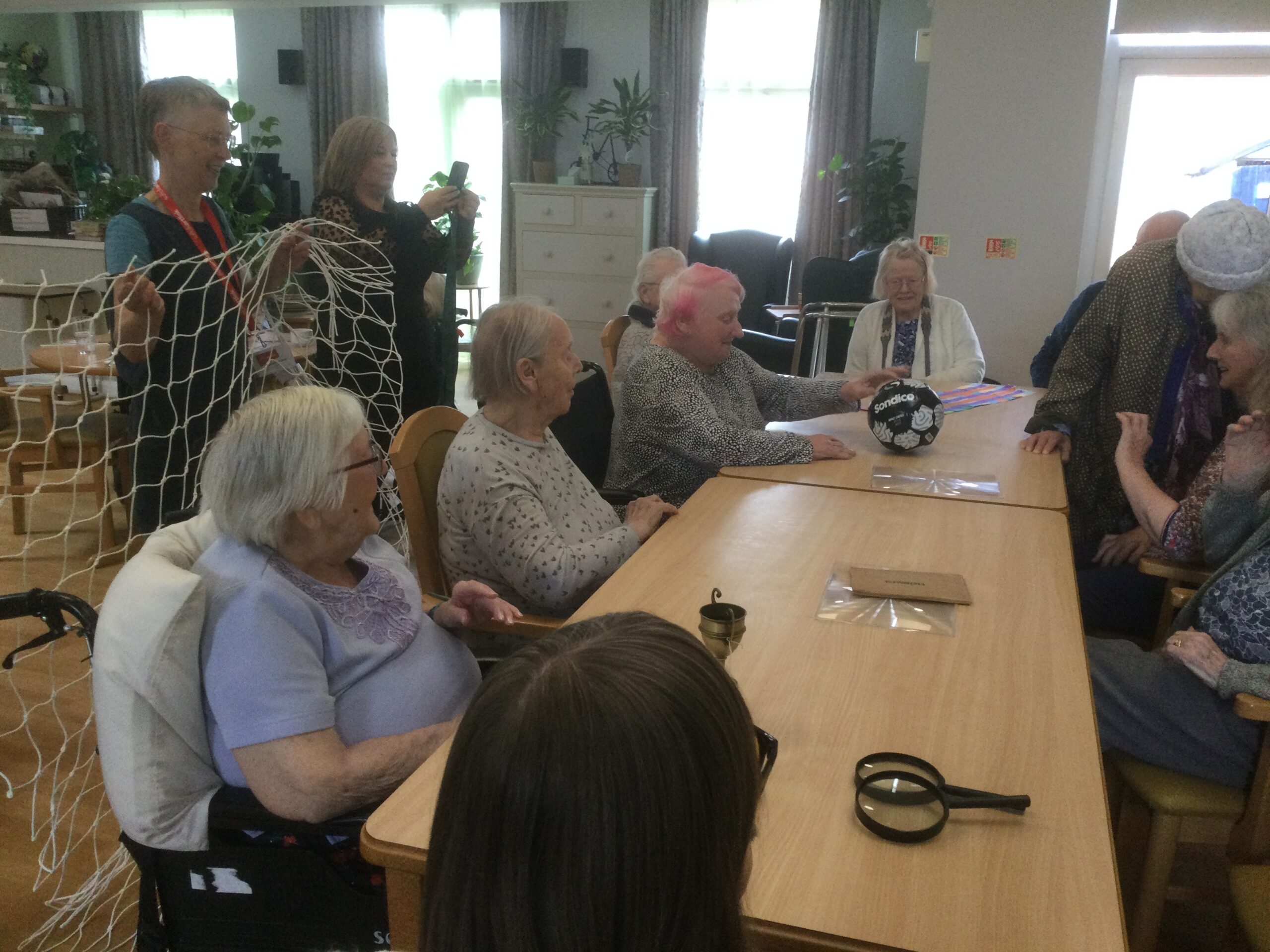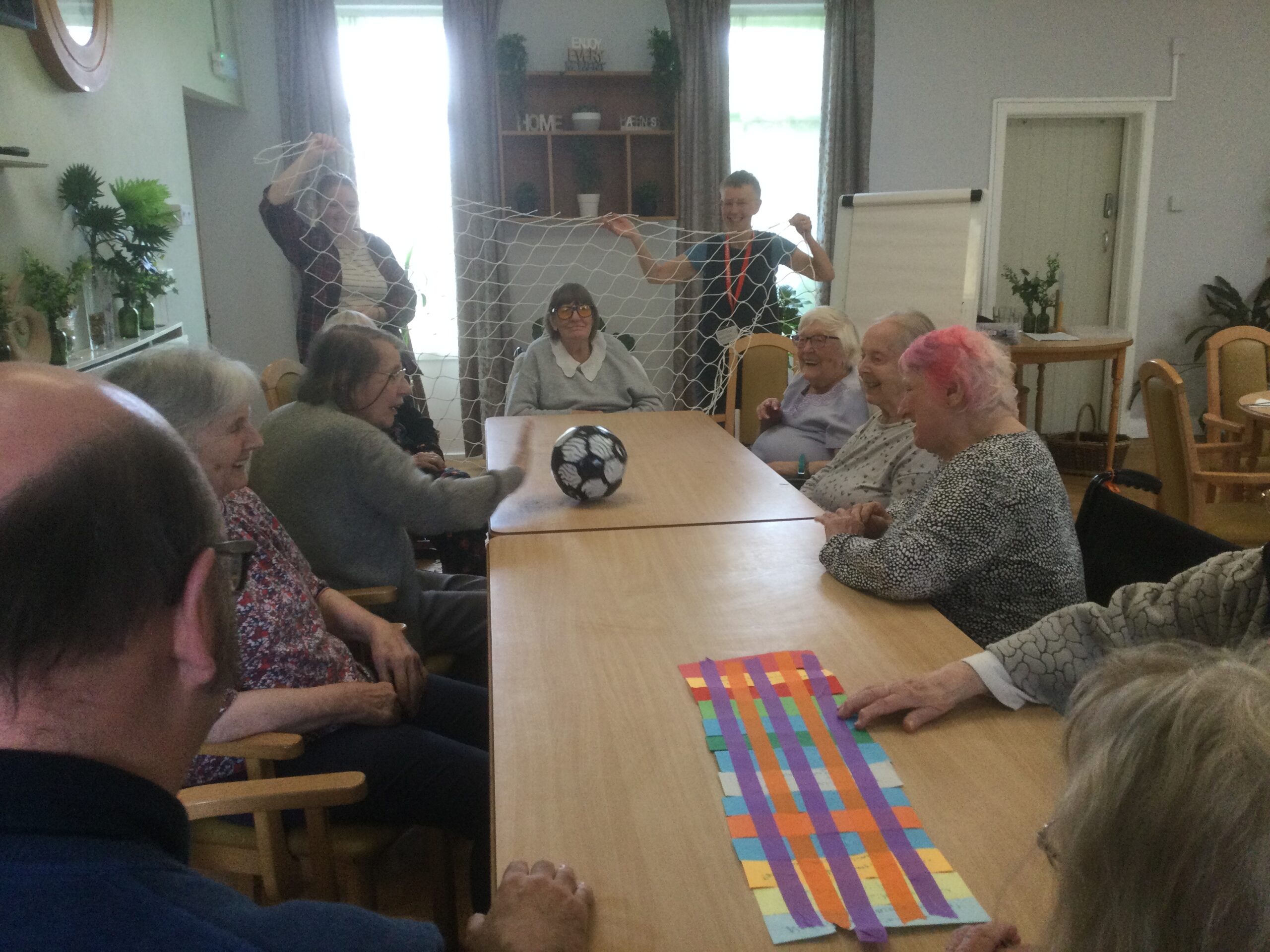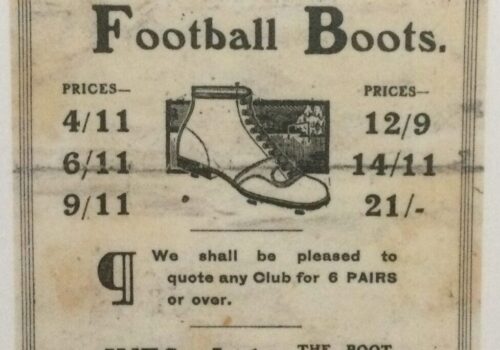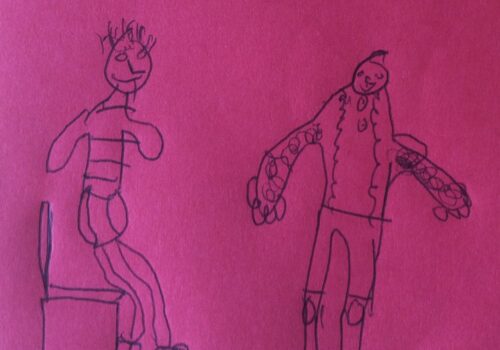How to kick, volley and swerve … and make poetry
The Extra Time Kit Bag holds all manner of football-related items, from old boots and pre-loved socks to goal nets and a captain’s armband.
When we took it along to Beech House, it was the 1934 Mummery Cup, on loan from Lowestoft Museum, that instantly scored with the residents.
It sparked some wonderful conversations about sporting activities in their youth – who knew that Pauline was a high jump champion or that Rita won awards for yoga? – as well as a glittering array of personal attributes and achievements, from tending gardens to taking care of people.
A small, brown-paper covered album of Player’s cigarettes football cards, also from Lowestoft Museum, kicked off some fascinating stories about life as a child back in the 1940’s.
None of the residents had actually collected the cards, but they had brothers who did, and they talked about covering their school books in brown paper, just like the album, and all this led to wonderful descriptions of family and school life in and around Halesworth and beyond.
As the album gave some handy hints on how to kick, volley and swerve, the Beech House Bakers decided to put it to the test, and launched into a table top football match, complete with a football net produced by a Lowestoft company that previously made nets for the fishing fleets.
Luckily for us, Dean was on hand to provide expert commentary on the game, after which he presented the group with the morning’s poem, in celebration of all the Beech House Bakers’ Trophies.
‘We always had a spoonful of Virol each, and I asked if I could be in line behind my brother, 'cos his nose always dripped.’
‘We were just an ordinary working class family, with five children. I was the eldest and during the holidays I’d take the others out of the house, so that our mother could get on. We walked all around the back roads, to Wissett and beyond. I’d collect wildflowers and press them in my books. Everyone shared what they had – if you were short of bread, someone in the street would give you half a loaf.’
‘We had a tin bath – it hung on a nail outside. The water was warmed in the copper – you’d light the fire under the big old copper in the scullery and you’d put anything on it that burned – old shoes even – and you’d have this red soap, Lifebuoy. Everyone used the same water, you started with the little ones and the adults went last. At the end of bath time, we poured the water on the garden and hung the bath up for next time.’
